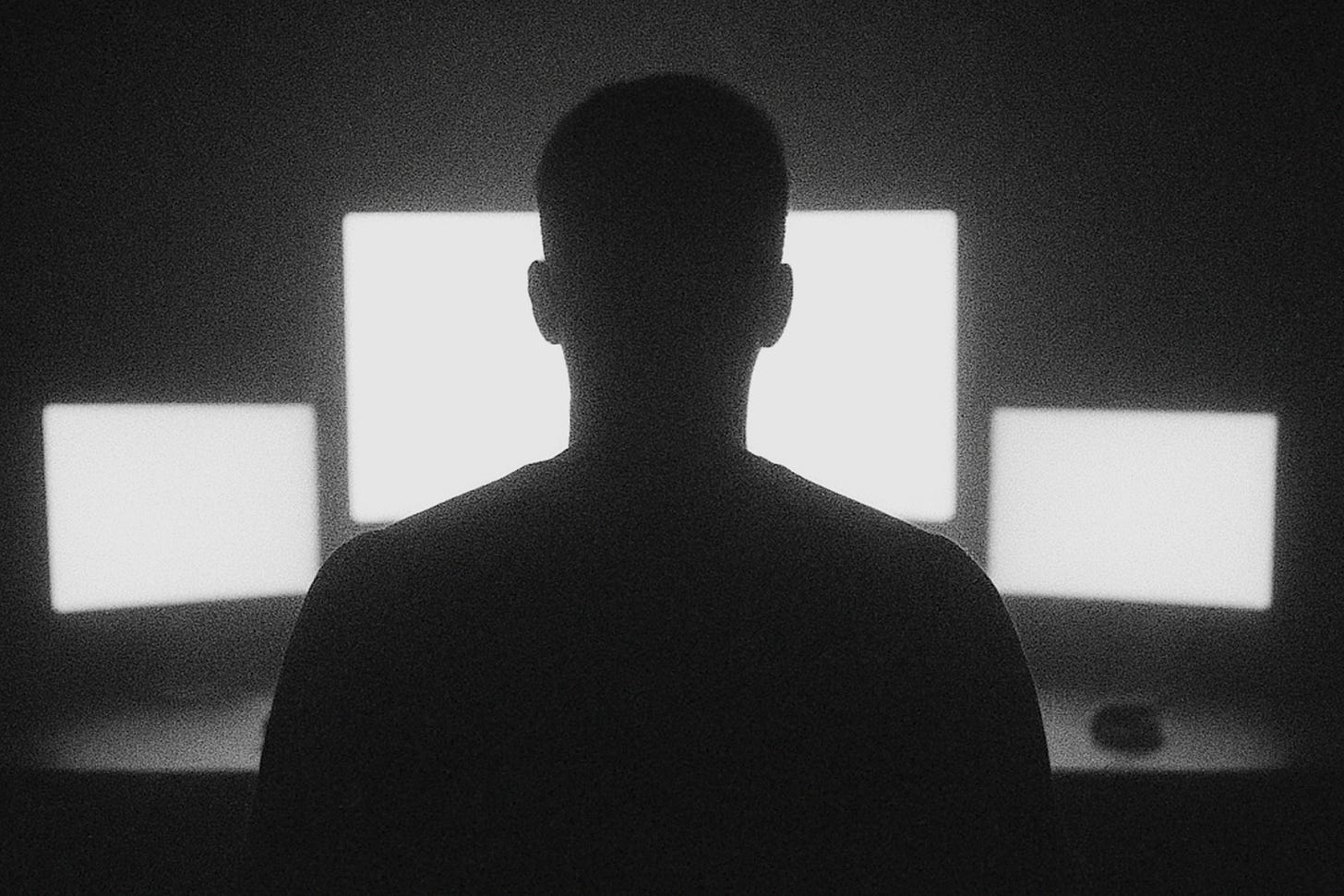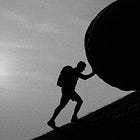The existential crisis that destroyed me, then changed my life. (1 of 3)
I had finally achieved everything I ever dreamed of...but it wasn't the answer. And I was losing my family in the process.
The following is part 1 of my 3-part series, "Every Dream Comes With a Cost" — a deeply personal essay about creative burnout, the true cost of success, and the terrifying moment when I realized:
“What if I’ve spent my entire life chasing the wrong dream?”
“I think everybody should get rich and famous and do everything they ever dreamed of so they can see that it's not the answer.” - Jim Carrey
Had I read this quote ten years ago as I was riding high editing the #1 show on network television, I would've called bullshit (p.s. Love you Jim!). But little did I know that while Empire was breaking decades of television ratings records, I too was falling prey to chasing my dreams while my life was falling apart.
But first, a little context.
Film and television editors do more than just "take out the bad parts." No doubt you're aware of what a big Hollywood film set looks like; the lights, the cameras, and of course all the action. And none of it happens without the cast and crew (how artificial intelligence may change all of this is another conversation for another newsletter). A full production of a top network or streaming show requires more than a hundred people both in front of and behind the cameras working tirelessly, generating 4-8 hours of raw footage per day, to bring you the shows you know and love. For a typical 45-60 minute episode of television this crew of hundreds might shoot in excess of 50 (or more!) hours of raw footage.
After a team of more than a hundred people spends days on end (and millions of dollars), the fate of the show then rests on only two shoulders - those of the editor.
Given the immense pressure of sifting through mountains of raw footage while under tight deadlines, you'd assume the studios would create a work environment designed to set their creatives up for success, no?
You would assume incorrectly.
Like most creatives, editors are instead expected to deliver their very best in dark, windowless rooms for 12 (often more) hours per day making hundreds upon hundreds of micro-decisions minute by minute (when they're not constantly being interrupted by Slack messages, knocks on the door, and pointless meetings). Therefore, it's no surprise that according to The American Institute of Stress, editor is the second-most stressful job in America. (WTF???)
Taking all of the above into account, add 2-3 hours of Los Angeles-style traffic five days a week, and this was my life. As my career was finally coming together, my family was coming apart.
The only time I saw my family awake was on weekends.
There were no Friday night movie nights.
I wasn't there to help them with their piano homework.
And bedtime was happening via FaceTime.
Little did I know that a single FaceTime conversation would not only change the direction of my career but also redefine who I would become as a person.
I was editing the Empire season 1 finale, and with so much at stake the studios were on edge. Massive production delays and creative challenges weren't helping. One morning while deep in the throws of sifting through "dailies" (the raw footage from set) my office phone began to ring. My office phone NEVER rings (I didn't even know it was hooked up). On the other end of that call was a studio executive for 20th Century Fox calling my direct line to "check in" and make sure everything was coming together. Never before - and never since - has a studio executive called my direct line to ask how things were going. Needless to say, there was zero room for error.
Somewhere in the fog of that TV war was the night I had the FaceTime call that changed my life.
Like any other evening, I went through the usual routine of virtually tucking in my son and daughter for bed (at the time they were 5 and 3, respectively). But this time was different. My wife thought she had hung up the phone, but they were still on the line. And my son said the following:
Why doesn't daddy want to put us to bed at night? Why doesn't he love us?
Never before (and never since) have I felt a punch to the gut like that single moment. (Having been incessantly bullied as a kid, that's saying a lot.) The weight of shame and guilt was so overwhelming that I just sat motionless in my small, dark, windowless room for what felt like hours. I had spent 15 years clawing my way from office intern at a local cable station in Southfield, Michigan to A-list Hollywood editor. But at that moment knowing 25 million people were about to watch my work suddenly didn't matter anymore.
I had finally achieved everything I ever dreamed of...and it wasn't the answer. But thankfully I was saving lives, because if all I did was make television, living like that would have been absurd.
At some point I came out of my shame coma, rolled up my sleeves, and cut the shit out of that season finale. The episode broke even more ratings records (this was back when people actually watched live television...I know, I'm a hundred years old), and Ron Howard's production company Imagine Entertainment (the producers of the show) sent me a bottle of wine to thank me with a personalized card hailing me as "The Ricky Jay of Editing!" (Ricky Jay is known as the best sleight-of-hand magician of all time.)
I stood there in my kitchen alone, in the dark, holding an expensive bottle of wine from one of the top production companies in Hollywood. It was my Attaboy! for a job well done. And all it cost me in return...was my soul. Soon after began the rapid decent to rock bottom, the slow unraveling of my identity, and the full-blown existential crisis that left me questioning...well...everything.
In that moment I only wish I had known that FaceTime call would become the best thing that ever happened to me, my career, and my family. Rather than the end of a story I no longer wanted to be the hero of, it was instead the prologue of an entirely new story where the hero defied the status quo and pivoted towards a career defined by purpose and impact rather than prestige credits and gold statues.
To get to the other side, however, I first had to go through total, unadulterated hell.
What happens when you ignore the warning signs and keep climbing anyway?
In Part 2 of my series “Every Dream Comes With a Cost,” I unpack what creative burnout really looks like behind closed doors — and how chasing the dream cost me far more than I was willing to admit.




Yes and yes to all of this!